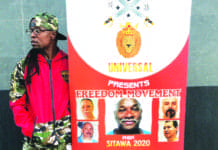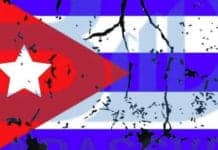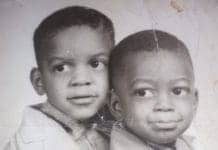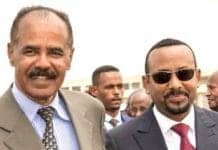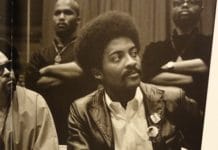by Kambale Musavuli

Although advocacy for the Congo has a rich and illustrious tradition dating back to the dawn of the 20th century, contemporary advocacy is faced with unprecedented obstacles: corporate interests, humanitarian industry, geo-strategic battles, the devaluation of Black lives, and media caricatures and misrepresentation of Africans.
In 1908, international advocacy resulted in Congo being taken from King Leopold II and given to the Belgian state as a colony. The ultimate aim of today’s advocacy is to see the Congo removed from the clutches of multi-national corporations, foreign governments, multi-lateral institutions, the humanitarian industry and local elites and placed in the hands of the people of the Congo. The challenge of 21st century advocacy is for the affairs of the Congo to be determined by the people of the Congo.
Challenges of the Congo
In his 1967 book “Challenge of the Congo,” Kwame Nkrumah noted that the struggle of the Congo is both an internal and external one. As we look at the Congo today, this has not fundamentally changed. A wide array of interests is aligned against the people of the Congo attaining true independence, liberty and human dignity.
Corporate interests
U.S. business interest in the Congo is focused primarily on the mining sector in resources such as tin, gold, diamonds, copper, cobalt, coltan, tungsten, uranium and many other natural resources. Minerals sought by U.S. businesses are vital to the U.S. aerospace, military, automobile, electronics and technology industries. For example, the Congressional Budget Office has reported that cobalt is vital to the U.S. military and aerospace industries. (See http://www.cbo.gov/doc.cfm?index=5126&type=0.)
“The challenge of 21st century advocacy is for the affairs of the Congo to be determined by the people of the Congo.”
A number of U.S. companies such as OM Group, Cabot Corp., Eagle Wings and Kemet Electronics were listed in a 2002 U.N. report among companies accused of benefiting from the pilfering of Congo’s wealth. The report, entitled “Final Report of the Panel of Experts on the Illegal Exploitation of Natural Resources and Other Forms of Wealth of the Democratic Republic of the Congo,” exposed how these and other companies benefited from the conflict in the Congo and there is little doubt that they would prefer that as little attention as possible be brought to the Congo and their activities in the country.
It is practices by these companies and others from the West that led UNCHR chief, Antonio Guterres to say in an interview with the Financial Times that “the international community has systematically looted the Congo.” (See http://www.ft.com/cms/s/0/d0ef7564-b6cb-11dc-aa38-0000779fd2ac.html.)
Humanitarian industry
Unfortunately the humanitarian industry has been trapped in the charity prism whereby Congo is viewed and approached almost strictly from the perspective of poverty, conflict, atrocities and depredation. Among the effects of this approach is that the humanitarian industry is silent in the face of oppressive governments and often work in cahoots with the very corporations that are pilfering Congo’s wealth. (See http://www.banro.com/s/CorporateResponsibility.asp.) Probably the most deleterious effect of this way of viewing Congo is the military prescription that these institutions lobby for in Washington, D.C. They often support policies that prolong conflict, prioritize military options and, in the final analysis, serve the propaganda of belligerent U.S. allies – Rwanda and Uganda, for example – as well as U.S. corporate foreign policy interests.
In the final analysis, the humanitarian industry functions more as an instrument of Western soft power than a genuine help to Africans in need. If they truly have the interests of the people of Africa and Congo at heart, their number one aim should be to put themselves out of business by calling for justice and not charity. When the people of Congo attain justice, charity will not be needed, hence no further need for these humanitarian institutions that breed dependency and prolong poverty.
Geo-strategic battle
Congo is a storehouse of geo-strategic minerals that are vital to the industrialization of great powers in the East, mainly China, and the maintenance of Western economic and military dominance, mainly the United States. China has invested $9 billion in the Congo in a mineral-for-infrastructure swap with the Congolese government.
“If humanitarian organizations truly have the interests of the people of Africa and Congo at heart, their number one aim should be to put themselves out of business by calling for justice and not charity.”
The United States has financed Freeport McMoran with nearly a half a billion dollars so that the American company can control what is considered to be the world’s richest deposits of copper and cobalt. The U.S. government has provided financial backing to Freeport in spite of the well-documented evidence (see http://www.apple.com/search/ipoditunes/?q=dan+rather+reports+all+mine) that the contract between the American company and the Congolese government is odious and does not benefit the people of the country.
Congo will be the playground of Great Power interests for the foreseeable future. Its location, size and mineral wealth are far too valuable to be left alone. Hence, irrespective of the type of government put in place by the Congolese people, they will need a permanent third force to function as allies of the people and serve as a check against Great Power interests.
Devaluation of Black lives

Yet, the world community is silent. Doctors Without Borders has consistently reported over the past decade that Congo is one of the top 10 most underreported stories. Unfortunately, the silence around the suffering in the Congo is due in part to the fact that Congolese are Black people or Africans.
We live in a world where Black lives are undervalued and underappreciated. However, things do not have to remain this way. We can change the attitudes and beliefs that have the world trapped in a mindset that undervalues a fellow member of the human family.
The global community has an opportunity to break the silence (see http://www.congoweek.org) around the Congo and demonstrate that Black lives in the heart of Africa are as valuable as any other lives on the planet. In breaking the silence and raising our voices, we will value not only the lives lost in the Congo but those living and future generations to come.
Pathological media prism
The mainstream media have remained true to their creed when it comes to the Congo. They have presented the Congo as an internecine tribal conflict with no discernible beginning or hope of ending. The media’s coverage of the Congo has been presented through a narrow pathological prism, which leaves people of goodwill who really want to do something to help, hopeless, despondent and disempowered.
If more stories were presented that clearly articulate the true nature of the conflict, that of a resource war, and that there are major identifiable players in our own backyard that we can hold accountable, one would get a dramatically different response from consumers of the mainstream media. The few moments when Congo gets coverage, it is usually grossly distorted:
1. There is usually a white expert telling the world fantastic tales of why Congolese are “killing” each other.
2. These experts are usually a part of the U.S. foreign policy complex of think tanks, research institutions and humanitarian entities who recently conducted a “fly-by” in the Congo or elsewhere in Africa.
3. One almost never sees a Congolese scholar, thinker, activist or intellectual articulating the issues of the Congo.
4. The Congolese people are almost always presented as helpless and in need of saving by Western do-gooders, usually a Hollywood star.
5. The U.S. policies and U.S. corporations who contribute to the fueling of the conflict are either obfuscated or left out all together.
6. Finally, slain gorillas usually get more attention and sympathy and in depth analysis than the Congolese people.
Prescriptions
A global Congo movement is as important today as the Free South Africa or anti-apartheid movement was yesterday. Former South African president Thabo Mbeki presciently noted, “There cannot be a new Africa without a new Congo.”
Contrary to presentations by Western scholars and thinkers, the conflict in the Congo is not intractable. In fact, should the correct policies be implemented, the conflict can come to an abrupt end or at the least be mitigated. The two basic goals of today’s global movement in support of the people of the Congo are as follows:
1. To bring an end to the 12-year resource war being waged on the backs of the Congolese people, particularly women and children.
2. To make sure that the affairs of the Congo are determined by the people of the Congo so that they can determine how best to use their enormous resources for the benefit of their people and Africa at large.
Pressure placed on aggressor nations – mainly U.S. allies Rwanda and Uganda – by countries such as Sweden, Netherlands and Canada has resulted in some action by the United States, but not action that instigates peace and lasting stability. Global pressure must be mobilized to call for a diplomatic and political approach to ending the conflict as opposed to the military heavy policies favored by the U.S. government, think tanks and humanitarian institutions in Washington, D.C.
There is a growing global grassroots movement around the Congo. Thanks to the Internet, the Congolese can speak to the world uncensored. Inside the Congo, Congolese are organizing teach-ins and rallies. We are seeing Congolese women staging sit-ins, Congolese artists using their talent to break the silence, and civil society rallying to reconstruct the Congo.
Though this movement is not covered by the mainstream media, there is an emerging youth movement in countries such as New Zealand, where high school students are boycotting usage of their cell phones, in Japan where students are organizing photo exhibits on their college campuses, and in America where students are building a global movement in support of people of the Congo. With their help, we have been able to connect with people around the world using social networking sites and utilizing video messages and podcasts to mobilize an otherwise unaware population.
“Global pressure must be mobilized to call for a diplomatic and political approach to ending the conflict as opposed to the military-heavy policies favored by the U.S. government, think tanks and humanitarian institutions in Washington, D.C..”
In October of 2008, Friends of Congo along with its allies organized a week of awareness raising called Congo Week (see http://www.congoweek.org) from Oct. 19-25, where 35 countries and 150 university campuses participated. We will do the same again in October 2009 with Congo Week II, Oct. 18-24, 2009.
As more people get involved, it is critical that the integrity of the movement be safeguarded. The last thing the people of the Congo need, is for the movement to be Darfur-ized – objectifying the people and emptying the issue of cultural and historical context.
The integrity of the global movement will be maintained if the justice narrative is adhered to as opposed to the charity narrative that many humanitarian institutions are currently pushing. A justice narrative embodies the following elements:
1. Congolese and Africans would be seen as agents of their destiny.
2. Political, social, economic and historical context would be central to the analyses and campaigns.
3. The corporate forces wreaking havoc in the Congo would be exposed.
4. The culpability of U.S. based corporations and the historic destructive role of U.S. foreign policy would be acknowledged and called on to make a radical departure from the status quo.
5. Congolese would be given a global platform to articulate to the global community the true nature of the challenges faced by the people and the prescriptions preferred by the people.
A driving force in our advocacy has been the famous quote by Frantz Fanon when he said, “Let us be sure never to forget it; the fate of all of us is at stake in the Congo.”
Kambale Musavuli is national spokesperson and student coordinator for Friends of the Congo. He can be reached at kambale@friendsofthecongo.org.

 Store
Store



